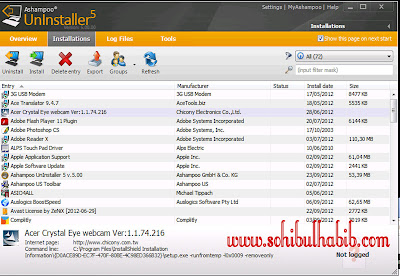

If something goes wrong following an uninstallation, the app can be restored in order to fix any issues that pop up. Here are three third-party uninstallers that can get the job done. So an uninstall utility needs to remove all leftovers for the program you're uninstalling without disrupting another program that may still rely on those items.įor this reason, many of the best uninstallers have specific backups and safeguards in place. Many Windows files and Registry settings are shared by more than one program. The challenge in fully uninstalling a Windows desktop application lies in finding the right balance. The uninstall features built into Windows don't necessarily remove all these leftover items, so a third-party uninstaller is needed to completely remove an application. Select the program you wish to remove, then either right-click it and select Uninstall or select Uninstall at the top of the list.Īpplications often spread their folders and files throughout your system and may even populate your Registry with settings that can be difficult to track down. Note that this view does not show you Windows Universal apps, only standard desktop applications.

Switch to icon view and click Programs and Features. Click the Search field on the Taskbar, type Control Panel, and select Control Panel from the results. If you prefer using Control Panel, that option is still available in both Windows 10 and Windows 11. How to Set Up Two-Factor Authentication.How to Record the Screen on Your Windows PC or Mac.How to Convert YouTube Videos to MP3 Files.How to Save Money on Your Cell Phone Bill.How to Free Up Space on Your iPhone or iPad.How to Block Robotexts and Spam Messages.


 0 kommentar(er)
0 kommentar(er)
